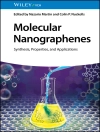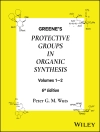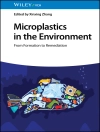Bringing together examples that until now were often hidden and widely spread throughout the original literature, this textbook shows how to use the correct reagents, conditions or reaction sequences to have access to all possible stereoisomers when beginning synthesis with only a single starting material.
Adopting a didactic approach, the authors have chosen general and simple examples throughout the book so that these reactions can be transferred easily to other reaction types.
While of major interest to master and Ph D students alike, this book is also a source of valuable information for organic chemists in both academia and industry.
Additional material for lectures at www.wiley-vch.de/textbooks
Inhoudsopgave
Preface
GENERAL METHODS TO DIRECT SELECTIVITY
Chemoselectivity
Regioselectivity
Stereoselectivity
Enantioselectivity
DIRECT SELECTIVITY: ACETYLENES AND ALKENES
Acetylenes
Alkenes
DIRECT SELECTIVITY WITH CARBONYL DERIVATIVES
Carbonyl Compounds as Electrophiles
Conjugate Addition to Carbonyl Compounds
DIRECTED SELECTIVITY WITH CARBONYL DERIVATIVES
Carbonyl Compounds as Electrophiles
Conjugate Addition to Carbonyl Compounds
Enolate Derivatives
Miscellaneous
SELECTIVITY AT SP3 –
CENTERS AND HETEROATOMS
Epoxides
Acetals
Ethers
Alcohols and Phenols
Sulfur Compounds
Amines
Halogen Compounds
Index
Over de auteur
Ekkehard Winterfeldt received a Ph D in 1958 with a dissertation on the total synthesis of lupin alkaloids at the University of Braunschweig. In 1959 he moved to the Technical University Berlin as an Assistant Professor and started to work on his habilitation. The venia legendi was awarded in 1963, and in 1969 he was offered chairs at the University of Marburg, Berlin and Hannover. He joined the Organic Chemistry Department in Hannover in 1970.
He is member of the Akademie der Wissenschaften in Gottingen, the Braunschweiger Wissenschaftliche Gesellschaft and the Leopoldina Halle. He received various awards and medals, served as the president of the GDCh and as a senator of the DFG.
Since 2000, he is Prof. Emeritus at the Organic Chemistry Department, University Hannover and he was elected an Honorary Member of the GDCh in 2012.
Tanja Gaich studied Chemistry and Biology at the University of Salzburg (Austria) and University of Vienna (Austria). After completing her diploma thesis at the University of Vienna in 2005, she received her doctorate degree under the supervision of Prof. Dr. J. Mulzer in 2009 from the University of Vienna. She then conducted a postdoctoral research at the Scripps Research Institute with Prof. Dr. Phil S. Baran. In 2010, she started her independent academic career at the Leibniz University of Hannover, supported by the Alexander von Humboldt Foundation with a Sofja Kovalevskaja prize.












